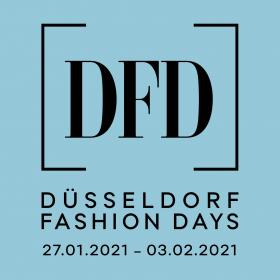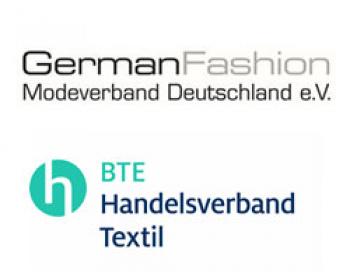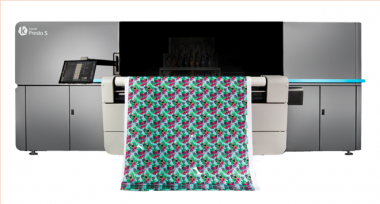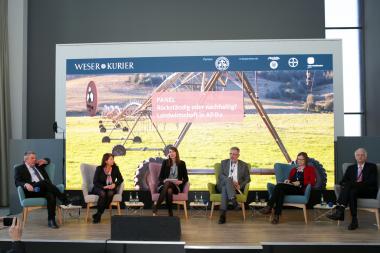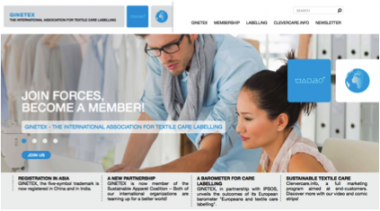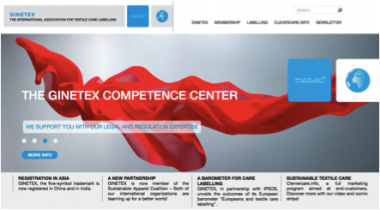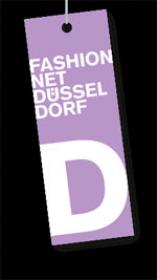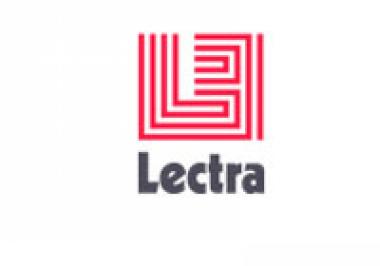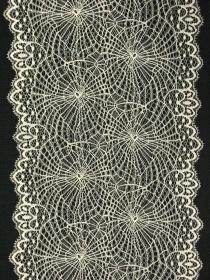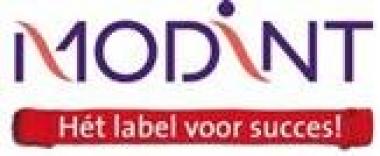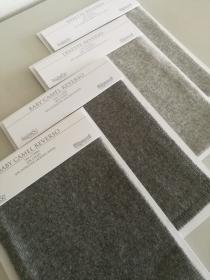BDSE Handelsverband Schuhe: Lockdown bringt den Schuhhandel an den Rand der Existenz
Abgesehen von kurzen und regional unterschiedlichen Öffnungsphasen, meist nur mit vorheriger Terminvereinbarung, durfte der stationäre Fachhandel seine Ladentüren in diesem Jahr noch nicht öffnen. Jeden Monat, in dem der stationäre Schuhhandel geschlossen bleiben muss, gehen rund 700 Millionen Euro Umsatz verloren. Nach den Verkaufssaisons Frühjahr/Sommer 2020 und Herbst/ Winter 2020/21 ist dies nun die dritte Saison in Folge, in der die Unternehmen auf einem großen Teil ihrer eingekauften Ware sitzen bleiben und hohe Verluste einfahren werden. Allein in den ersten drei Monaten dieses Jahres hat der stationäre Schuhfachhandel pandemiebedingt und im Vergleich zur Vorcorona-Zeit schätzungsweise 1,5 Milliarden Umsatz eingebüßt.
Da die staatlichen Hilfen bei weitem nicht reichen, zahlreiche Schuhhäuser sogar gänzlich leer ausgehen, werden viele Schuhhäuser den langanhaltenden Lockdown kaum überleben können. Nach einer aktuellen Handelsbefragung des HDE gehen 58 Prozent der Schuhfach-händler davon aus, dass sie ohne weitere staatliche Hilfen ihr Geschäft noch in diesem Jahr aufgeben müssen! Bei gut 3.000 Unternehmen mit rund 10.000 Stores sind empfindliche Lücken in unseren Innenstädten zu befürchten, zumal die wirtschaftliche Situation im Beklei-dungshandel ähnlich dramatisch ist.
Deutliche Verschiebung der Absatzkanäle
Die Pandemie führte im Schuhmarkt zu einer deutlichen Verschiebung der Marktanteile der Absatzkanäle. Eindeutiger Krisengewinner ist der Onlinehandel, der im vergangenen Jahr seinen Marktanteil nach BDSE-Berechnungen von 26 Prozent auf 34 Prozent ausbauen konnte. Gewachsen sind nicht nur die Online Pure Player wie bspw. Zalando, sondern auch die Online-Umsätze der Multichannel-Schuhhändler mit stationären Wurzeln, die ihren digitalen Vertriebsweg in den vergangenen 12 Monaten mangels Alternativen zum Teil kräftig ausbauten. Wie überhaupt viele kleine und mittelgroße Schuhgeschäfte in der Zeit des Shutdowns neue digitale Kommunikationskanäle zu ihren Kunden sich erschlossen oder ihre digitalen Tools aus Servicegründen weiter optimiert haben. Deren Online-Verkäufe, oftmals über Online-Marktplätze und -Plattformen getätigt, vermochten aber bei weitem nicht die Umsatz- und Renditeverluste des stationären Geschäfts auszugleichen. Aber sie konnten darüber zumindest den Kundenkontakt halten und versuchen, überschaubare Teile ihrer Warenüberhänge trotz Öffnungsverbot abzusetzen.
Rückläufiges Marktvolumen
Die Kanalverschiebungen finden in einem insgesamt rückläufigen Markt statt. Denn die Verbraucher halten sich mit ihren Konsumausgaben Corona-bedingt auch bei Schuhen aktuell zurück. Nach vorläufigen BDSE-Berechnungen schrumpfte das Marktvolumen bei Schuhen in 2020 um 13,5 Prozent auf 10,2 Mrd. Euro. Zwar konnte der Online- und Katalogversandhandel bei Schuhen um 15 Prozent zulegen, doch gingen in dieser Zeit dem stationären Schuhhandel rund 23 Prozent seiner Umsätze verloren. Neben den Schuhfachgeschäften mussten auch andere Vertriebsformen des Einzelhandels, die dem Lockdown unterlagen, bei ihren Schuhumsätzen zweistellige Einbußen verkraften, so beispielsweise die Schuhsortimente der Kauf- und Warenhäuser und jene der Bekleidungsgeschäfte.
"Schuhhandel muss wieder öffnen dürfen"
Die Schuhbranche hofft auf eine Nachbesserung der Corona-Hilfen. Dies insbesondere auch im Zuge der anstehenden Änderung des Infektionsschutzgesetzes, das mit einer Verlängerung der Lockdownphase und verschärften regionalen Öffnungsszenarien verbunden sein wird. Wenn schon der Nonfood-Handel diesen Kraftakt zur Eindämmung der Pandemie leisten soll, dann müsse der Staat auch für einen fairen Schadensausgleich sorgen. Wobei aus Sicht des BDSE und durch wissenschaftliche Studien des RKI, der TU Berlin und der Berufsgenossenschaft belegt sei, dass die Ansteckungsgefahr im Einzelhandel – insbesondere bei Beachtung der gängigen Abstands- und Hygienevorschriften – ausgesprochen gering sei.
Vor diesem Hintergrund fordern die Handelsverbände, dass bei der Novellierung des Infektionsschutzgesetzes und den weiteren Corona-Maßnahmen das Problem bei der Wurzel gepackt wird. Gesetzgeber und Behörden sollten sich auf die wirklich wirksamen Lösungen zur Eindämmung der Pandemie konzentrieren und nicht auf Wirtschaftsbereiche, die nach wissenschaftlichen Erkenntnissen kaum Effekte auf das Infektionsgeschehen haben. Hinzu komme beim Verkauf von Schuhen der Gesundheitsaspekt einer fachkundigen Beratung. Denn nicht nur bei Babys und Kindern, deren Füße in bestimmten Altersklassen rasch und innerhalb nur eines Jahres über mehrere Schuhgrößen hinweg wachsen, ist mit Blick auf die Passform eine qualifizierte und zeitnahe Beratung beim Schuhkauf sehr wichtig. Sondern auch bei Erwachsenen sei gut passendes Schuhwerk gesundheitlich geboten, nicht zuletzt um Fußdeformationen, Nervenschmerzen und Fehlhaltungen mit entsprechenden orthopädischen Folgeschäden vorzubeugen. Auch aus diesem Grund, und sich auf ein Urteil des Bayerischen Verwaltungsgerichtshofes vom 31. März dieses Jahres stützend, hat der BDSE unlängst nicht nur die Öffnung der Kinderschuhgeschäfte, sondern die Öffnung aller Schuhfachgeschäfte gegenüber Bund und Ländern gefordert.
Unabhängig davon kämpft der BDSE seit Monaten gemeinsam mit den Landesverbänden und dem HDE für eine Verbesserung der staatlichen Überbrückungshilfen. Noch immer erhalten viele kleine inhabergeführte Geschäfte, aber auch die großen Schuhfilialisten, überhaupt keine Überbrückungshilfen, um die aktuelle Krise zu überstehen. Und für die allermeisten jener Schuhgeschäfte, für die Hilfsgelder in den Fördermaßnahmen vorgesehen sind, reichen diese nicht aus, um die schließungsbedingten Verluste auch nur annähernd zu decken und die Unternehmen finanziell ausreichend zu entlasten.






